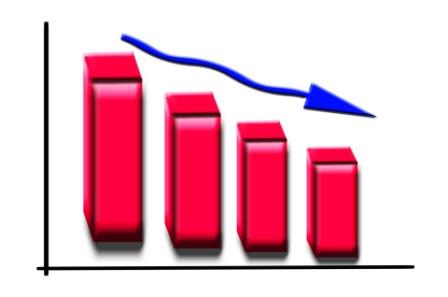 Money
& Evolution
Money
& Evolution
 Money
& Evolution
Money
& Evolution
| Home | Natural Family Living | Big Life Issues | Animal- Human- Angel |
Culture of Love | Solar Culture | Spirituality | Emotion |
Contact Bruce About PWP Links Photo Credits:- Graph shows business is bad (PublicDomain Pictures, Pixabay) Monied woman sees money is anti-empathy (Engin_Akyurt, Pixabay) |
 Money & Evolution
Money & EvolutionDid you know that money is basically anti-evolution and anti-empathy? See author Christopher Ryan say so in a BBC Ideas video (posted 22 November 2019, accessed 29 November 2019). I felt it so important that I have transcribed it below: "Wealth
affects our psyche in interesting and
complicated ways."
Are rich people heartless? "Not just the total amount of wealth that someone experiences, but more importantly the differential of wealth between someone and the people around them. What we find is that wealth differentials have profound effects on subconscious, psychological processes. Like, for example, the ability to read emotion on another person’s face is actually diminished by greater wealth [Study by Michael W. Kraus, 2010]. People are less likely to let an old woman with a cane cross the street if their car is more expensive [Study by Dacher Keltner and Paul Piff, 2012]. Cheaper cars are more likely to stop. There’s a sense of entitlement and alienation from other people that seems to accrue with greater wealth, and certainly with differentials between one’s position and the position of those around them. Great wealth disparities only entered human experience with the advent of agriculture because this is the first time that there were accumulated resources. When you have accumulated resources you immediately start to see political hierarchies. Someone needs to decide how to distribute the harvest, who gets what. Someone needs to organise the sowing of the fields and the working of the fields. Someone needs to organise the harvest of the food and the counting and the organisation and storage of the food. So all these things entered into human life at the same time, with the advent of agriculture. What we generally do with the extra money is buy things that separate us from other people. I lived in Spain for a long time and I often think about the word ‘aislar’ in Spanish which means both to insulate, like you insulate your house or a jacket insulates you from the cold – but it also means to isolate and isolation is death for our species, literally. In hunter-gatherers, if you are expelled from the group, you are as good as dead. So one of the most painful things we can experience is when a group kicks you out. When your membership is revoked and you’re pushed out of a group it’s emotionally very, very painful for us. The reason is that it’s associated with survival. And so it’s ironic that what we tend to do with our extra money, our surplus income, is we purchase privacy, we purchase separation. We get a bigger house, with a bigger yard, with a bigger wall. We get a bigger car with tinted windows and air conditioning. We stay at five star hotels where we don’t ever have to see anyone or talk to anyone. This is against life, this is anti-human, essentially – and yet these are the values that Western society tells us to strive for and to try to achieve. And when we look at people who have great wealth, we don’t find that they are happier. In fact we find that the correlation between wealth and happiness levels off very quickly [Study by Princeton University, 2010], somewhere around $70,000 [about £54,600] per year for an individual in the United States. In fact, the most potent predictor of longevity and health, both physical and mental, is whether someone feels embedded in a community of loving and supportive people. That’s a more important factor than whether or not you smoke, how fat or skinny you are, how much exercise you do, what kind of diet you have. All of those things pale in comparison to whether or not you feel that you are surrounded by people that you can count on. It’s not that unethical, unfeeling people necessarily are better at accumulating wealth. It’s that when you have accumulated wealth, or you’ve been raised in it just because of your family circumstances, you can become unfeeling and you can lose a sense of compassion - because the situation in which you are living is so unnatural and so psychologically imbalanced and difficult that we develop this scar tissue to protect ourselves from the pain of being around people that we want to help but really can’t. Are there exceptions to the rule or the tendency of wealthy people to be heartless? Of course there are, yes, there definitely are. I look at money the same as I look at alcohol. A little wine with dinner is fantastic; 15 bottles of wine with dinner is not a good night, right? So there are these things that in small amounts can be a tonic and in greater amounts become toxins. I think wealth is clearly one of those. So, people who are exceptions to this, who really understand how to manage wealth, they are able to minimise its effects by controlling their access to it, and often by spreading it around and giving it to people who really need it – and in so doing, reaping the psychological benefits of that generosity."  Further Quotes David Graeber’s Debt has become required reading for a generation. Debts, he argues, are “systems of coercion” that reduce the products of human cooperation – “creativity, devotion, love and trust” – into numbers. “In doing so, they make it possible to imagine a world that is nothing more than a series of cold-blooded calculations.” (Richard Godwin, The Guardian, posted and accessed 15 November 2020) People who have great material riches are never at peace; they are constantly in a whirl of activity and worries of all kinds, always on their guard against the ambitions of dishonest, greedy people who have an eye on their fortune. And however vigilant they are, can they ever be sure of foreseeing and parrying every threat? The weight of their never-ending cares drags them more deeply into matter and cuts them off from the regions of the spirit. As a result, they waste a great deal of time and energy which could be used so much more profitably for their own evolution and that of all those whom they could have helped with their spiritual riches. Whatever tasks you have to fulfil, it is better not to overburden yourself but be content to have just what you need. You only complicate things by asking for more. (O.M. Aïvanhov) Stop believing in good billionaires. Start organizing toward a good society. (Anand Giridharadas) Resources
|
Also see:- Evolutionary Psychology articles Money articles Love & Evolution |
| Top of Page | Contact Bruce |